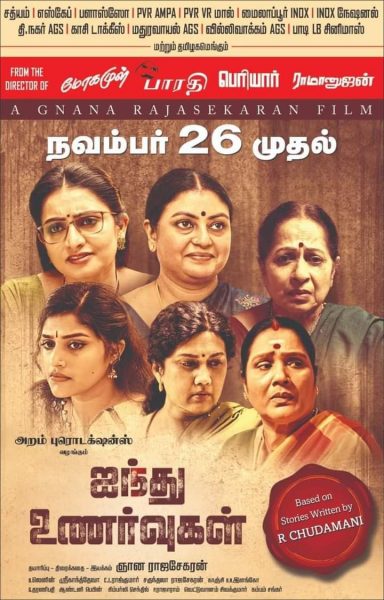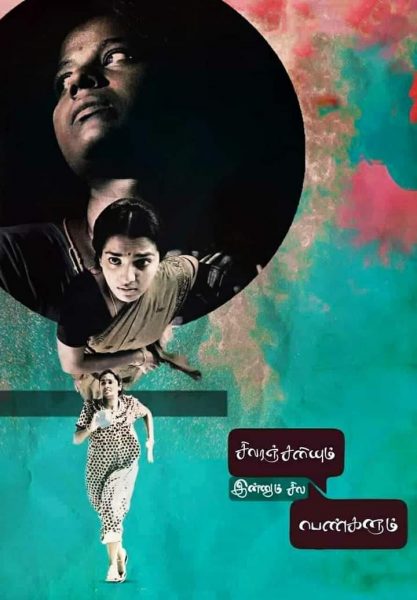
A rarity in Tamil cinema: Two anthologies, both focusing on women

It is a rarity in Tamil cinema: Two filmmakers. Two anthologies. Focusing on women. Both released on the same date – November 26.
Ainthu Unarvugal, by former IAS officer Gnana Rajasekaran, is based on five stories by R Chudamani. Sivaranjiniyum Innum Sila Pengalum, by well-known filmmaker Vasanth S Sai, is based on three stories by Ashokamitran, Aadhavan and B Jeyamohan.
The first anthology was released in half a dozen select cinemas across Tamil Nadu and the latter was released on OTT platform Sony Liv.
It is not new for Tamil cinema to adapt literary works. Until now, however, these adaptations have mostly been of novels. Poo (2008) was probably the first Tamil film adaptation of a short story (Veyilodu Poi by Sa Tamilselvan).
Also read: Bodo film recreates horror of Bhutan’s slavery system at Goa film festival
Vasanth Sai has form when it comes to adapting short stories. He has previously made a short based on Thakkaiyin Meedhu Naangu Kangal, by Sahitya Akademi winner Sa Kandasamy. He also made Payasam, based on a short story penned by Thi Janakiraman, which was a part of another anthology, Navarasa, released a couple of months ago on OTT.
Eight Stories Revolving Around Women
All five stories in Ainthu Unarvugal take place between 1975 and 1985. The first, Irandin Idayil, is about an adolescent boy’s infatuation with his tuition teacher, who is married. Thanks to her, he develops an interest in history. Attracted by her way of teaching, he slowly develops a love for her. When he comes to know that she is married, he develops a grudge against her husband. How the boy’s mother handles this situation is the rest of the story.
The second story, Amma Pidivathakari, is about a widowed mother. She and her son live in a small house, with little privacy. After the son gets married, the wife moves into the house. Every night, the sounds coming from the newly married couple’s room disturb the mother, and she decides to move into a woman’s hostel.
Also read: IFFI special: Sanchari Vijay’s last film raises queries on development vs nature
Pathil Piraku Varum, the third story, is about dowry. A woman is forced to remain single because her parents cannot afford her dowry. One day, one of the men who was not ready to marry her because of lack of dowry meets her after a long gap. Now he is a widower and a father of two sons. He wants to get married to her, and she agrees. However, she divulges a secret that makes him reconsider his proposal.
Thanimai Thalir is about the love of grandparents for their granddaughter. The girl’s career-oriented parents have left her and are living in another part of the country.
The fifth story, Kalangam Illai, shows how society has preconceived notions of a working woman staying alone in a rented house.

The first story of Vasanth’s film is about a woman named Saraswathi. It is based on the story Vimosanam, penned by Ashokamitran. The story takes place in 1980, and depicts a couple living in abject poverty.
Based on Jeyamohan’s Devaki Chithiyin Diary, the second film shows how there is no freedom for a working woman in a joint family, even to maintain a diary.
The third is based on Aadhavan’s Ottam. Set in 2007, this film is about Sivaranjani, a sprinter who wants to represent her college at national level, but has to give up her dreams following her marriage. Years into the marriage, she realises that she still has the fire in the belly and can still run.
Though both anthologies have been well received, it remains to be seen if they will turn a profit. Both were produced by the filmmakers themselves.


